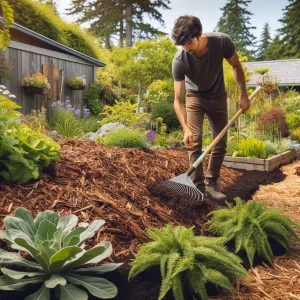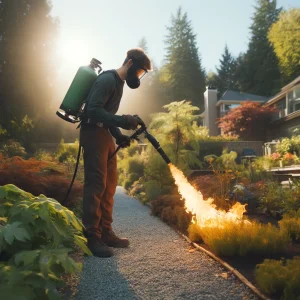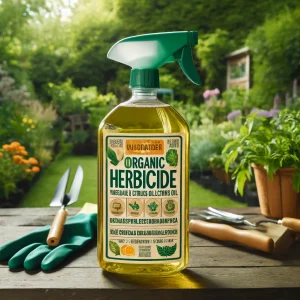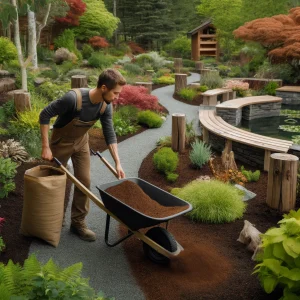As environmental awareness grows, home gardeners and commercial landscapers in British Columbia increasingly turn away from chemical herbicides in search of eco-friendly weed control methods. These sustainable practices minimize environmental harm, enhance soil health, and promote biodiversity. Here, we explore innovative, chemical-free techniques suited to British Columbia’s unique climate and provide practical tips for integrating these methods into your gardening or landscaping practice.

Mulching: A Natural Barrier Against Weeds
Mulching is one of the simplest and most effective strategies for weed control. By applying a layer of organic material such as bark, straw, or leaf mould to the soil, mulch reduces light exposure to weeds, effectively suppressing their growth. Mulch also helps retain soil moisture and adds nutrients as it decomposes. For best results in British Columbia’s diverse climate, choose a mulch material that is locally available and suits your specific plant needs.

Flame Weeding: A Heat Approach
Flame weeding is another popular eco-friendly method, especially for larger areas and tougher weeds. This technique involves using a propane torch to deliver a searing blast of heat to the weeds, causing the plant cells to burst and the weeds to wither. Flame weeding is highly effective on young weeds and can be an excellent solution for gravel paths or driveways where weeds frequently pop up.

Organic Herbicides: Chemical-Free Solutions
Organic herbicides are a viable option for those who prefer a more traditional approach to weed control without the environmental impact. Derived from natural sources, these herbicides often contain ingredients like vinegar, citrus oil, or corn gluten meal, which desiccates weeds upon contact. While they may require more frequent application than synthetic chemicals, they are much safer for the soil and surrounding wildlife.

Long-Term Benefits and Integration into Landscaping
These eco-friendly weed control methods offer significant long-term benefits for the environment and your garden. Improved soil health leads to more robust plant growth and a more resilient garden ecosystem. Moreover, these methods can easily be integrated into existing landscaping practices. For example, mulching can be part of your regular garden maintenance routine, while flame weeding can be done seasonally to manage weed growth effectively.

Challenges and Considerations in British Columbia
Gardeners and landscapers in British Columbia must consider regional challenges such as variable weather patterns and diverse soil types. It’s essential to choose weed control methods that are adaptable to these conditions to ensure success. Furthermore, staying informed about local regulations regarding weed control can help you comply with environmental guidelines and contribute positively to your community’s ecological health.
In conclusion, moving towards eco-friendly weed control methods not only supports the health of your garden but also aligns with broader environmental goals. By adopting techniques like mulching, flame weeding, and using organic herbicides, gardeners and landscapers in British Columbia can enjoy lush, beautiful landscapes without relying on harmful chemicals.